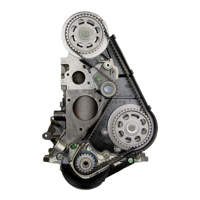Top Benefits of Choosing the 2.2 Ford Ranger Engine for Your Next Pickup
Top Benefits of Choosing the 2.2 Ford Ranger Engine for Your Next Pickup
Blog Article
What Makes an Auto Engine Run Smoothly: Leading Tips for Optimum Care
The smooth operation of a car engine is essential to both performance and durability, making optimal care an essential responsibility for automobile owners. What certain steps should you focus on to ensure your engine continues to be in peak problem?
Normal Oil Adjustments
One of one of the most essential facets of automobile maintenance is ensuring your engine gets regular oil adjustments. Engine oil lubricates internal parts, lowers rubbing, and aids maintain ideal operating temperatures. Over time, oil weakens due to warmth, pollutants, and the all-natural results of combustion, causing minimized performance and potential engine damages.
Most producers recommend changing the oil every 5,000 to 7,500 miles, yet this interval can differ based upon driving conditions and oil type. Synthetic oils might permit for longer periods in between adjustments. Routine oil modifications not just boost engine performance but additionally improve fuel performance, as tidy oil promotes smoother procedure.
Overlooking oil adjustments can lead to sludge buildup, which impairs flow and can result in severe engine concerns. It is important to examine oil levels frequently and keep an eye on for any kind of uncommon changes in color or uniformity, which could suggest contamination or deterioration.
.jpg)
Keeping Coolant Levels
Maintaining appropriate coolant levels is necessary for stopping engine overheating and guaranteeing optimal efficiency. The coolant, usually a combination of water and antifreeze, distributes via the engine, soaking up heat and preventing thermal stress and anxiety. Not enough coolant can bring about raised engine temperatures, which may create severe damage or perhaps total engine failing.
To maintain ideal coolant degrees, regularly inspect the coolant tank, typically found in the engine bay. Ensure the coolant is filled up to the suggested mark, as suggested in your lorry's owner handbook. It is recommended to inspect the degrees at least once a month or in the past long journeys, particularly throughout severe weather.
If you notice that the coolant level is continually reduced, there might be a leak in the cooling system, which must be resolved immediately to avoid additional issues. 2.2 ford ranger engine. Additionally, flushing the coolant system every 2 to 3 years can help get rid of any type of built up debris and ensure reliable warm exchange
Monitoring Air Filters

It is suggested to inspect the air filter every 12,000 to 15,000 miles, or a lot more often if driving in messy or damaging problems. A basic visual examination can often expose whether the filter is unclean or damaged. If the filter appears blemished or has visible dirt buildup, it ought to be replaced quickly.
Making use of a top notch air filter created for your specific vehicle version can additionally enhance engine performance. In addition, some cars might gain from multiple-use filters that can be cleansed and re-installed, offering a ecologically pleasant and economical alternative.
Inspecting Glow Plugs
Flicker plugs are necessary elements of a car's ignition system, directly affecting engine performance and efficiency. They develop the stimulate that sparks the air-fuel combination in the burning chamber, helping with the engine's power generation. Routine inspection of ignition system is essential check my blog for keeping ideal engine feature and protecting against possible issues.
Dark soot or oil deposits can suggest improper burning, while a raw or white appearance may recommend overheating. Both conditions require immediate attention to protect against more engine damage.
It's suggested to check ignition system every 30,000 miles, or as suggested in your automobile's owner manual. Additionally, take into consideration replacing them according to the maker's standards, as old or used ignition system can cause misfires, reduced gas effectiveness, and increased emissions.
Monitoring Tire Pressure
Under-inflated tires can lead to reduced gas efficiency, boosted tire wear, and endangered handling. Normal tracking of tire stress is necessary for optimal vehicle operation.
Tire stress should be checked at the very least when a month and eventually trips. Use a reputable tire stress gauge to gauge the stress when the tires are cold, ideally prior to the lorry has been driven for at the very least 3 hours. Refer to the vehicle's owner manual or the placard situated on the driver's side door jamb for the producer's recommended pressure levels.
It is necessary to note that tire stress can change with adjustments in temperature level; a decline of 10 ° F can lead to a 1-2 psi decline in stress. Furthermore, visually evaluate tires for any signs of wear or damages during your surveillance routine. Keeping proper tire pressure not just improves car security however additionally enhances fuel efficiency and extends tire life, eventually adding to a smoother engine efficiency.
Verdict
In verdict, keeping a vehicle engine's smooth procedure calls for persistent focus to numerous crucial aspects. Inevitably, a positive technique to engine care is necessary for making certain dependability and functionality over time.
One of the most critical elements of auto maintenance is guaranteeing your engine gets regular oil modifications. Engine oil lubricates internal components, lowers rubbing, and assists preserve optimal operating temperatures. Routine oil changes not only enhance engine efficiency yet likewise boost fuel effectiveness, as clean oil promotes the original source smoother procedure.
Inadequate coolant can lead to boosted engine temperatures, which might cause serious damages or also overall engine failure.

Report this page